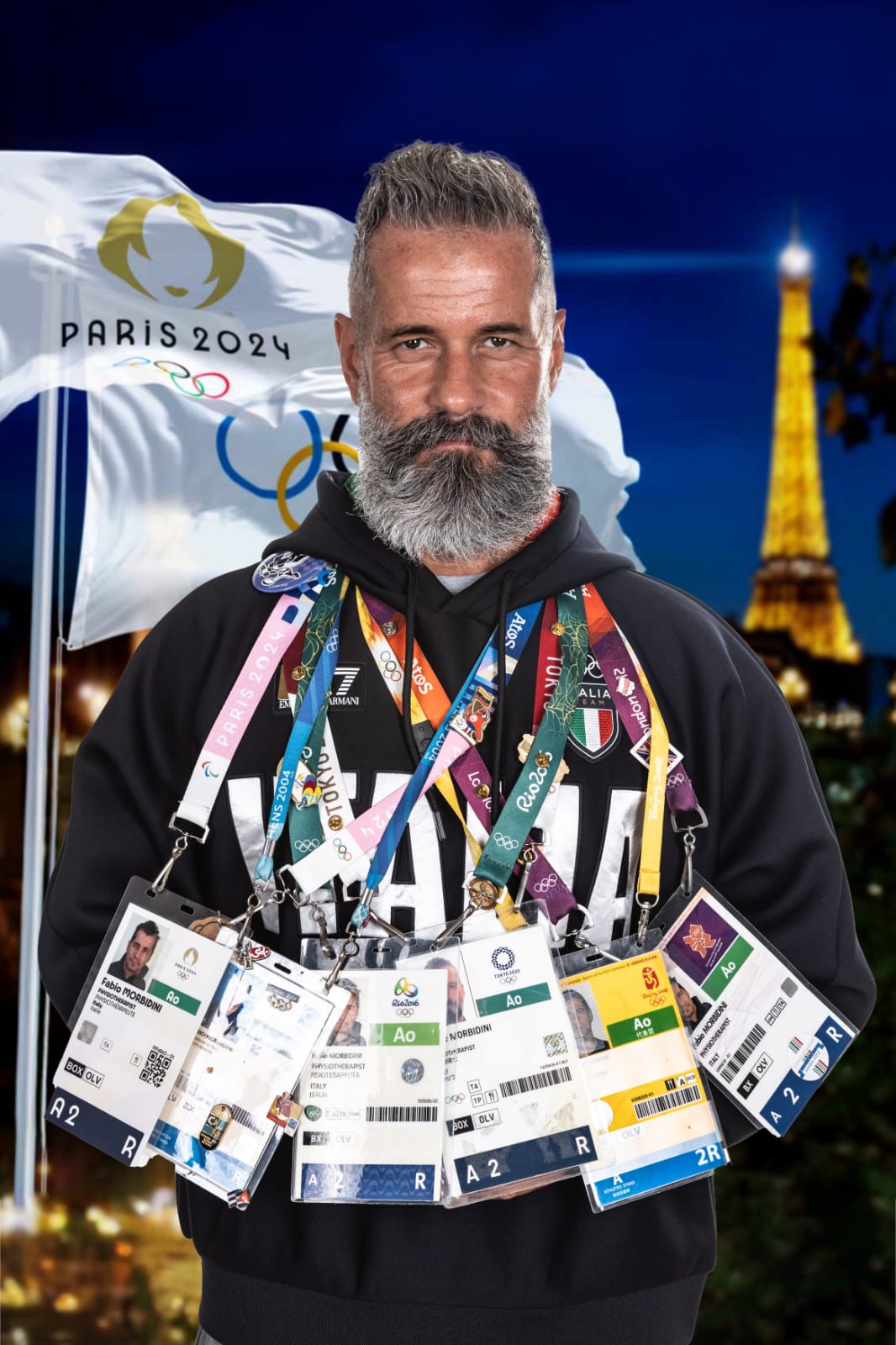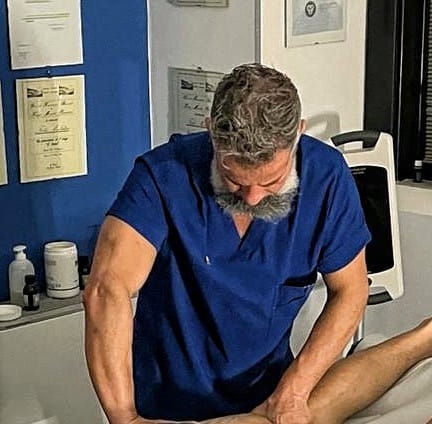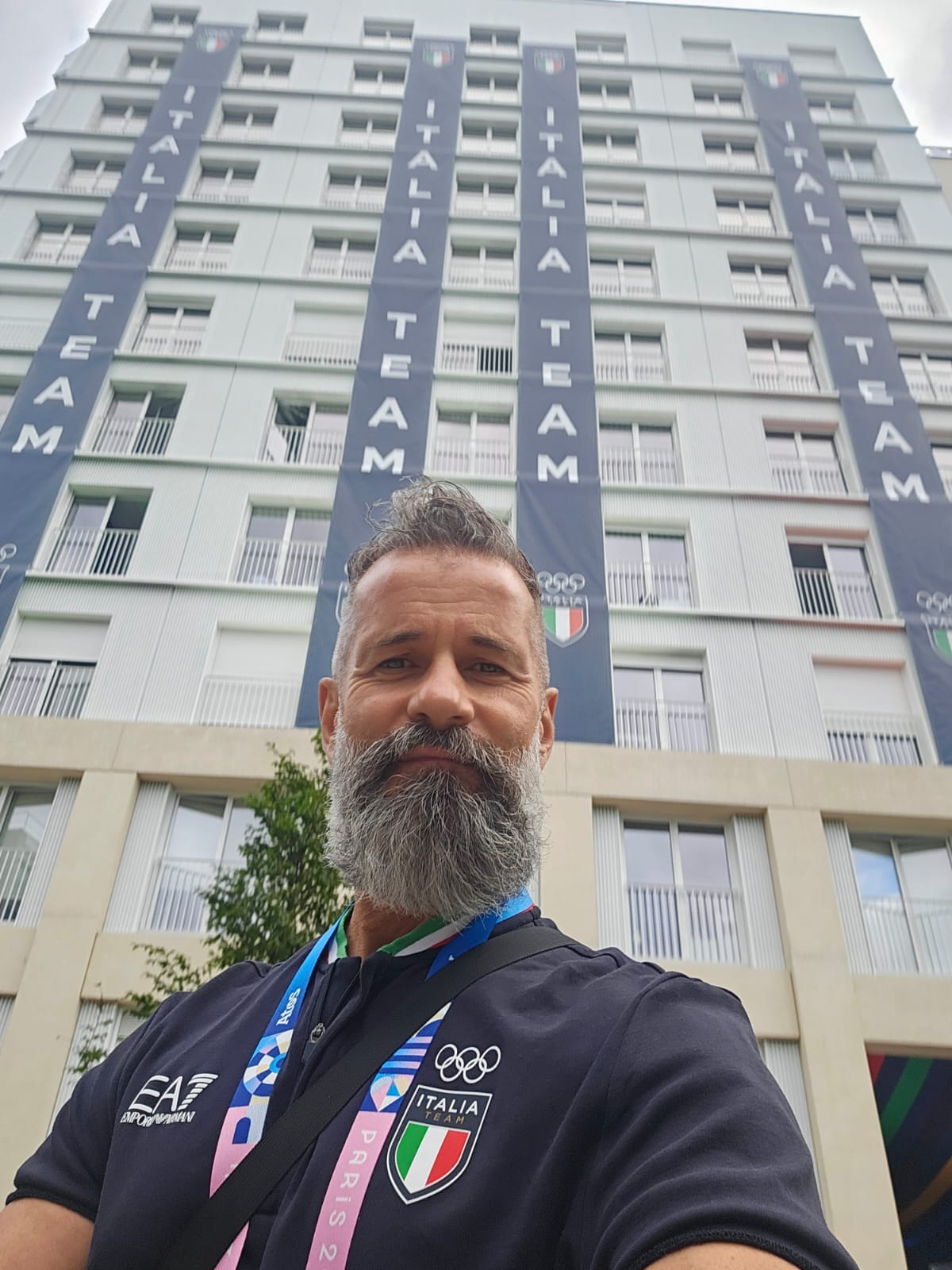The physiotherapist and physical trainer from Bastia Umbra tells us about his experiences around the world with the Italian boxing team. But not only that…
From Athens 2004 to Paris 2024, he hasn’t missed an Olympics. Eight world championships (China, USA, Italy, Azerbaijan, Uzbekistan, Qatar, Serbia and Kazakhstan), over 100 trips in 23 years following the Italian boxing team. These are important numbers and great experience for Fabio Morbidini, physiotherapist and physical trainer from Bastia Umbra who loves combat sports (it couldn’t be otherwise), who will never forget Beijing 2008 and who perhaps recorded his last Olympics in Paris: «I don’t know if I’ll go to Los Angeles 2028. I need to dedicate myself to myself and my private life, I’m no longer a kid».

Fabio, what is your relationship with Umbria?
It’s an excellent relationship. For 23 years I have been traveling the world for work at least four months a year and, between one trip and another, Umbria is my place of rest, where I can recharge my batteries. I love my region, but I also need to see new places, so as to better appreciate the peace and tranquility that this territory gives me.
You have participated in six Olympic Games (Athens 2004, Beijing 2008, London 2012, Rio de Janeiro 2016, Tokyo 2020 and Paris 2024) as a physiotherapist in the Italian boxing team. Are you a regular now or do you still feel the adrenaline of the first time?
Over time, the adrenaline has changed according to my age and the changes in the world. As an adult, I am more aware of what I do and therefore I live my work in a more serene way. Furthermore, the massive presence of social media in these events has changed expectations and perception, giving us a lot of visibility: even if in the end my job always remains the same. In 20 years the world has changed and consequently also the Olympics: the 2004 Athens games have nothing to do with Paris 2024.
How do you become a physiotherapist for the Olympic team or any other sports team?
The story is very easy and casual. I have always practiced combat sports such as karate and kickboxing and I am also a boxing coach, so I associated my work with my passion for sport. I would have had difficulty dealing with a sport in which I was not emotionally involved: I like boxing, I come from that world and I have no difficulty watching 40 matches in a day. I also follow other sports, but not with the same adrenaline. I started to take care of boxers when I was young, then I met the Olympic champion Roberto Cammarelle: I followed his professional career, both for physical preparation and from a physiotherapy point of view; I was there when he won the gold medal in Beijing and the silver in London. Furthermore, the National Federal Boxing Center is in Assisi so it was easy for me to reconcile it with my work as a physiotherapist that I carry out in Bastia Umbra. In short, partly by luck, partly by commitment I got everything I wanted: I am the type who always puts the foot down on the accelerator, I don’t let fate dominate me, I try to let it flow where I want, obviously with great sacrifice.
Is he strict with the athletes he follows? How do you approach them?
You don’t have to be strict, you have to be peremptory, but also delicate. The life of an athlete is already tough, if you are hard on them you get the opposite effect, so it is good to use kindness. Let’s try to make these guys understand how much they sacrificed to get where they are and that what they do is for them, not for me or the coach. We on the staff make a small contribution to their victory and, if they use us for their goals, we are very happy.

The Olympic medals won by the athletes you take care of, do you feel they are also a little bit yours?
The medals are won by the athletes. We are part of a group and everyone has their own slice of the cake and their own role. I take care of physical problems, small or large ailments, pain management and athletic preparation together with the trainer. Ours is a meticulous job done day by day. Due to my character, I have never fully enjoyed the medals I have won, because I immediately think about what I have to do the next day: as soon as one race ends another one starts so you don’t have much time to enjoy the results. You are inside a circuit, so time is really short and often you don’t even have the chance to reflect. However, I am satisfied, even if I always aim higher.
Is there anything more than the Olympics?
I have some ideas. I would like to work with centers that apply research to sports, or where important research is done, not so much in terms of performance, but in terms of professional growth.
Do you ever bring a little piece of Umbria with you on your travels?
More than anything, I always bring something to eat (Parmesan or vacuum-packed food) because we often go to places where the food is really bad (laughs). For other things, I don’t have much space in my luggage because most of it is taken up by medical and work equipment.
Of the six Olympics, is there one that you will never forget?
Beijing. For me, it was the most beautiful: not only because of Roberto Cammarelle’s gold and Clemente Russo’s silver. I still remember that Cammarelle fought the final against a Chinese man, on a Sunday at lunchtime, and it was a great success. Obviously, since social media didn’t exist yet, everything ended with the end of the match. If they had, it would have had a huge echo and great worldwide participation.
Did you live in the Olympic village in Paris? Can you tell us some funny stories… how did you sleep in the famous cardboard beds (which I heard were also in Tokyo)?
The Olympic villages are the same in all the Olympics, and beyond what is said, things flow calmly. It is a place where you only go to eat and sleep, then each athlete goes to do their training and competitions. There is not even time to enjoy the place because everything is frenetic: you live as if you were in a city and it becomes normal to eat with more than 20,000 people or meet an Olympic champion. Even the cardboard beds – which have been the subject of much talk – are a rumor: I confirm that they were also in Tokyo, it is not new to Paris. They were made of compressed biodegradable cardboard, I slept comfortably in them and what’s more they had the possibility of changing the pressure of the mattress, you could use it as you preferred. Everything was inflated to find something to write and talk about. I assure you that I have been in worse places.
I can’t help but ask you this question: in the last Olympics, women’s boxing was at the center of the scene, but not for sporting feats. What do you think about the story of Angela Carini and the Algerian boxer Imane Khelif? You who experienced it from ringside.
I won’t comment.
But did you have an idea?
Obviously, but I repeat, no comment.

The next stop is Los Angeles 2028?
I don’t know. First of all it doesn’t depend on me, then if they call me I’ll decide whether to go or not. I’ve been organizing my holidays based on trips for 23 years, I’d like to dedicate myself to my private life. I’m not a kid anymore and I’d like to spend my last years able to choose to go on holiday whenever I want. The time I dedicate to myself must increase. In addition, I also have a private business and patients who count on me and my presence.
To conclude: how would you describe Umbria in three words?
Quiet, serene and genuine.
Agnese Priorelli
Latest posts by Agnese Priorelli (see all)
- Trabalza and Jin, when photography perfectly blends different worlds and styles - June 19, 2025
- Cristiano Spilinga, naturalist: «The wolf is back. Bears that have been missing in Umbria since the late 1800s have been spotted» - May 27, 2025
- The Cannara onion: poor in the land, prestigious on the table - April 29, 2025

